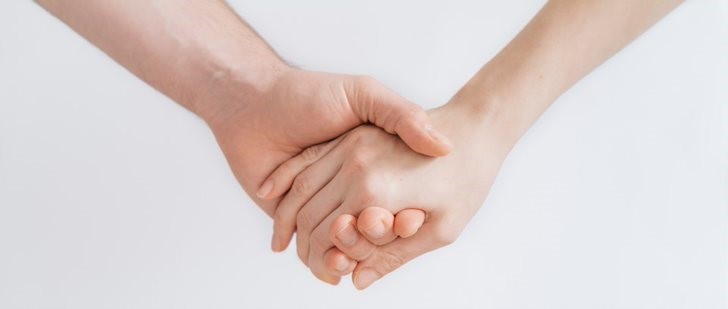
What young people really want from sex education
Peer reviewed by Dr Sarah Jarvis MBE, FRCGPLast updated by Milly EvansLast updated 11 Oct 2018
Meets Patient’s editorial guidelines
- DownloadDownload
- Share
- Language
- Discussion
Relationships and sex education in England is about to change. And the Department for Education has been consulting the public, experts and schools about what it should look like. We explore the topics young people, and the charities and health experts supporting them, hope will be included in the new guidelines.
In this article:
Video picks for General sexual health
Relationships and Sex Education (RSE) is undergoing a revival in England. Since making it compulsory in March 2017, the Department for Education has been consulting the public, experts and schools about what should be in the new guidelines. The draft guidance was recently released and is now under a second public consultation to refine and improve it.
The curriculum was last updated in 2000, which means that people now in their thirties were educated under the same guidelines as students who have only recently joined secondary school.
Over the last two years, I have been campaigning with the Family Planning Association (FPA), as a Stonewall Young Campaigner and as the founder of ISupportSexEducation for a better sex education curriculum. Here's what I believe young people want and need from sex education today, in addition to guidance on contraception and preventing sexually transmitted infections (STIs).
Continue reading below
LGBTQ+ inclusion
LGBTQ+ (lesbian, gay, bisexual, transgender and queer) inclusion has been at the forefront of much of the current campaigning for better sex education.
The old curriculum was written under Section 28 - controversial legislation introduced in the late 1980s which prevented schools from 'promoting' homosexuality and stopped councils funding support groups for lesbian, gay and transgender initiatives. The clause was repealed in Scotland in summer 2000, and in the UK on November 18th 2003, but the effects of section 28 can still be felt today. Many teachers still feel that speaking about LGBTQ issues is taboo.
But conversations about gender identity and sexuality are crucial for young people and can have a major impact on mental health, self-esteem and interpersonal relationships, explains Jacob Edward, 20, presenter of podcast Queer Culture.
"Having LGBTQ+ inclusive sex and relationship education in school would have had such a huge impact on how I viewed myself. Knowing more about non-binary identities would have helped me understand my feelings of abnormality in my own body and the anxiety, depression and dysphoria that followed, because I had no idea why I felt like it."
Porn and sexting
Back to contentsThe curriculum of 18 years ago does not reflect the world that children grow up in today. With technology so readily available and largely unregulated from an early age, pornography, sexting and social media play a key role in young people's lives, offering up new challenges in navigating romantic and sexual relationships.
For many young people, porn is their first introduction to sex, inadvertently replacing the RSE which schools should be providing.
In the words of Alex Cheney, 25, a volunteer and champion for sexual health charity Brook, the internet "affects everything from how young people view themselves to their relationships and sexual experiences.
"In the age of the internet, especially with the ease of access to porn, it is absolutely vital that we talk about the ways in which the internet, social media and in particular porn give such a distorted view of sex, expectations and body image. This is such a massive issue for young people. It is something that we need to talk about and not just ignore because it is too 'awkward'."
Continue reading below
Consent
Back to contentsConsent is central to all aspects of RSE, and must be included in the new curriculum, highlights Bekki Burbidge, deputy chief executive of sexual health charity FPA which focused its 2018 Sexual Health Week on the topic.
"Consent is really the single most important aspect of RSE and a good understanding of giving and getting consent is key when it comes to healthy, respectful relationships and sexual well-being."
From a very early age, consent plays a key role in all relationships, friendships and interactions, romantic and sexual or not.
"If a young person has a good understanding of what consent means to them and to others, it lays the foundation for so many other core values such as respect and communication," Burbridge points out.
Pleasure and sex positivity
Back to contentsWhilst sex education often gets a bad rap for using scare tactics to try to prevent STIs and teen pregnancy, a more positive, open approach is favoured by many young people and sexual health experts.
Masturbation and casual sex should be included in RSE in order to reflect the kinds of relationships and sexual experiences of many young people. It can also play a role in helping to break the taboos around sex for pleasure, rather than just procreation.
In Brook's 'Young People's Manifesto', the charity recognises that it's important we learn about the positive aspects of relationships and sex, in a way that makes sense for our age. This means that we will have the best chance of having healthy relationships when we're ready.
The Department for Education's consultation on the draft guidance for the new Relationships and Sex Education curriculum is open online to the public until 7th November.
Patient picks for General sexual health

Sexual health
Why is sexual violence against men on the rise?
With calls to male sexual abuse helplines increasing in 2021, it's important to be aware of where you or a loved one can find support if needed. There are a number of reasons why men don't feel able to seek support following sexual abuse or assault. It's essential that we, as a wider society, ensure everyone feels safe asking for help.
by Emily Jane Bashforth

Sexual health
What you need to know about sexual consent
The #MeToo movement sparked an unprecedented conversation around sexual harassment and assault and saw many people come forward with allegations against powerful men in Hollywood. It started a discussion not only about the assault, but about sexual consent too. Here is everything you need to know about consent - and why it is so much more than just saying no.
by Lydia Smith
Continue reading below
Article history
The information on this page is peer reviewed by qualified clinicians.
11 Oct 2018 | Latest version

Ask, share, connect.
Browse discussions, ask questions, and share experiences across hundreds of health topics.

Feeling unwell?
Assess your symptoms online for free
Sign up to the Patient newsletter
Your weekly dose of clear, trustworthy health advice - written to help you feel informed, confident and in control.
By subscribing you accept our Privacy Policy. You can unsubscribe at any time. We never sell your data.